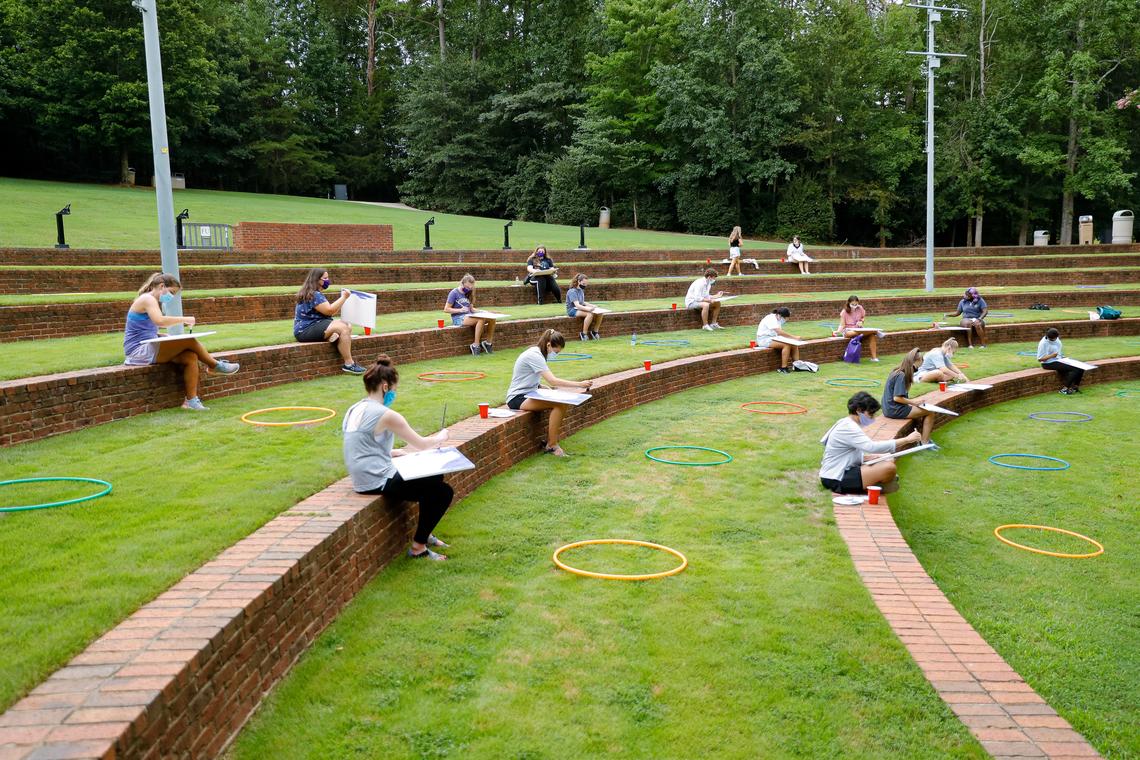As the devastating COVID-19 pandemic descended on the United States last spring, we helplessly watched as our daily lives were altered completely. It is safe to say that as a nation, and as a school, we embarked into uncharted territory, not knowing what was to come. But those days of quarantine turned to weeks and then to months, and now here we are living in a society in which masks, social distancing, and isolation are our new “normal. While we have taken the time to check on friends and loved ones’ physical well being, many of us have likely neglected to address an equally important question: mental health. Furman students have especially fallen victim to this sort of oversight. While Furman administrators continue to take extreme measures to protect our physical health, they have done little to care for the average student’s mental wellbeing.
Mental health was important before the pandemic, but now that more students are experiencing loneliness and uncertainty, it has become an even more crucial topic. Though many of us have returned to campus, that does not mean that all is well or that the University’s job is done. A place of familiarity has now become foreign and unrecognizable for returning students, and for freshmen and transfers, it may be difficult to consider Furman home.
Without diminishing the importance of social distancing and physical health, Furman has a responsibility to do more to promote student mental wellbeing. As of now, it seems that we are being treated more as liabilities, rather than people. We are expected to follow demanding restrictions without question, but there are not many ways to enjoy being on campus. We have few places to go other than our dorm rooms or apartments. Even the Physical Activities Center and the library now have restricted hours. It can be exhausting and difficult to find purpose and motivation with the monotony and uncertainty that has become our reality. What once was a period of exploration for students has morphed into a never-ending cycle of work, rest, repeat.
The administration needs to be more proactive in finding outlets for students to build community on campus. The activities they are currently promoting are sad excuses for actual stimulation—Jumanji in the amphitheater is hardly a fun event on a Friday night for young adults. Clubs are doing the best they can, but with the restrictions and lack of clear communication from the administration, it is difficult to orchestrate safe, socially distanced activities on campus. That is especially concerning because college students displayed disproportionate rates of anxiety and depression before COVID-19. Thus, they are especially prone to experiencing mental difficulties during this challenging time.
Therefore, the administration needs to start hosting age-appropriate activities that give students social opportunities. Though the current situation obviously limits the breadth of activities available, something as simple as allowing outdoor parties in North Village could provide students an opportunity to let off steam. If Furman does not start to prioritize student mental well-being and social interaction, the administration will soon face pandemics on two fronts: sickness of the mind and body.









































